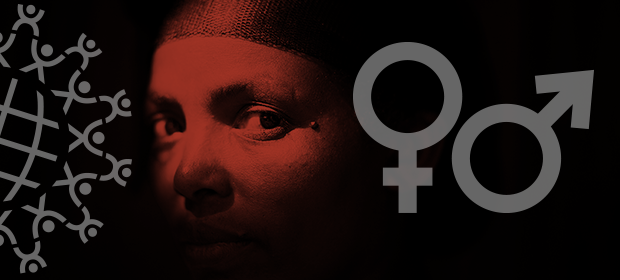Where We Work
See our interactive map


In Mara region, Tanzania, Kabula (not her real name) was the youngest of three wives.
Eventually one of her husband’s other wives got sick with symptoms that Kabula related to HIV. Because this man barred his sick wife from seeking medical attention, her condition worsened and finally she died.
Concerned about her own health, Kabula defiantly and secretly sought a test at the HIV care and treatment center at Shirati hospital. She was HIV-positive.
At home her husband beat her and confiscated a treatment monitoring card she was given at the hospital.
This is a typical path for survivors of spousal abuse in Mara, Tanzania, where some men traditionally consider their spouses and children to be pieces of property that must be bent to their whims. As a result, gender-based violence is high in Mara region.
But only 20 out of its 500 health facilities can provide appropriate clinical services to survivors.
78% of health workers would not know what roles and tasks to carry out if a survivor sought their assistance.
A health system response to survivors of abuse such as Kabula is a relatively new intervention in Tanzania. As of December 2013, only 2% of approximately 7,000 health facilities in Tanzania were suited to provide clinical services to survivors of gender-based violence, according to the Ministry of Health and Social Welfare
.The Ministry of Health says many factors compromise the quality of care for survivors. For example, fearing further reprisals, victims and compassionate relatives seek clinical services only when situations get very serious. And lack of proper protocols and inadequate training of service providers undermine the quality of service to survivors.
There’s also a gap in psychosocial services. Without special training on how to handle cases of gender-based violence, it is difficult for frontline health workers to be efficient and consistent.
On her second visit at the hospital—without the card to help providers monitor her treatment—Kabula met Peter Migenda, a nurse and social worker.
Acting on Peter's advice, Kabula sought help from his husband's clan meeting. Afterward, the husband agreed—to his clansmen—to let his wife seek medical service.But at home, he beat Kabula again and tore her new card.
Most survivors of gender-based violence do not seek help from any source.
A study in Mara conducted by IntraHealth International's Tanzania HIV Prevention Project found that 78% of health workers would not know what roles and tasks to carry out if a survivor sought their assistance. Additionally, 78% of providers report that their facilities have no guidelines or standard operating procedures for handling gender-based violence. So, like other health workers in this situation, Peter acted on his own intuition.
I met Peter as he attended a second round of training on handling cases like Kabula's. The training exposed 60 health workers to concepts and definition of gender-based violence, communication and counseling skills, medical-legal skills for gender-based violence, survivor care and support, and collection forensic evidence
.Luckily, Kabula had visited again and after he attended the first training.
The Tanzania HIV Prevention Project equips health workers with the skills to deal with survivors of gender-based violence. Clinical services are complemented with law enforcement services to survivors through the local police force’s Gender and Child Abuse Desk. Referring survivors to law enforcement is now one of the key elements of Peter's work.
Approaching a friendly police officer to report a case of abuse is critical for the safety of survivors. Most do not seek help from any source.
"After the training, I know what I should have done," Peter says.
Since IntraHealth began training health workers to handle survivors of abuse in Mara, Tanzania, in May 2013, more than 1,400 survivors have received assistance from trained health workers.
The big picture is more complex, though.
Over 60% of gender-related abuse cases are not reported in hospitals or police stations, according to the IntraHealth study in Mara.
And community mobilization is also important. Kabula's husband’s awareness of his wife's rights, Peter's skills in dealing with her case, and Kabula’s willingness to seek law enforcement assistance are vital to sustainably addressing gender-related abuse.
Eventually, Kabula divorced.
IntraHealth’s Tanzania HIV Prevention Project is supported by United States' President's Emergency Plan for Aids Relief (PEPFAR) through the US Centers for Diseases Control and Prevention.
Get the latest updates from the blog and eNews




